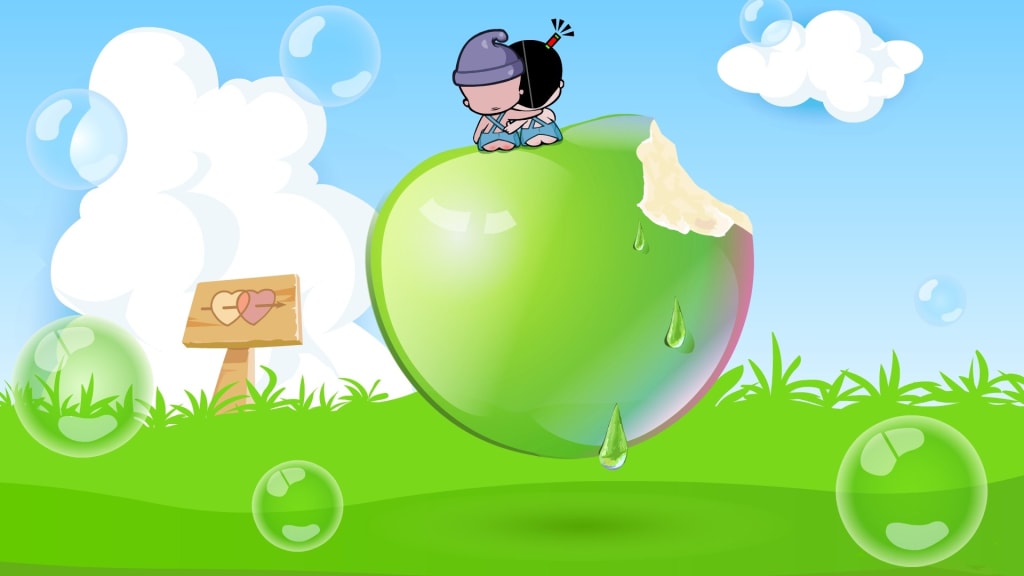The power of "hint" is so terrible: these words that parents often say will predict the future of their children (with communication methods).
Educational policy

Professor Susan Ward, a psychiatrist, once said: "Children always believe what their parents say about themselves and turn it into their own ideas."
Language is powerful, it can support people, and it can also hurt people. Our casual words sometimes have more influence on our children than we can imagine.
Parents' mouth is the fengshui of their children's life.
The article I share with you today is about how parents' language affects the character and fate of their children.
Parents who have helped their children with their homework must encounter a situation like this:
When a child is stuck on a problem, never say, "Why can't you turn your head around such a simple question?"
Once you have said this sentence, no matter how well you speak, even if you say it ten times a hundred times, the child will not understand it.
Many parents must have noticed this phenomenon:
Silent parents cannot raise "talkative" children; parents who complain all day cannot raise optimistic and positive children; grumpy parents can raise children who are either depressed or have a bad temper.
Sometimes parents' mouth is the same as opening a light, words come out of the mouth, how to say, what to say, can often determine the child's performance, character, and even the future of the child.
What's going on?
A person's perception of himself will be biased.
In psychology, there is a word called "Barnum effect".
It means that in the process of knowing oneself, it is easy for a person to accept the hint of foreign information.
And, in general, he will think that these cues accurately describe his own characteristics, resulting in a deviation in his cognition.
I read on the Internet that a netizen said that she grew up hearing what her parents said: are you a pig? look at your humiliating appearance, what can you do when you grow up? can you have a snack?
Being so belittled all the time, she really felt that she was useless, couldn't do anything well, and made mistakes in everything she did.
So whether it is the school or the company's big and small competitions, she does not dare to participate, even if others think she has the strength.
Even after graduating from college, she felt that she was not fit to stay in the company and should work as a waitress in a small restaurant.
When a person accepts false cues for a long time, he will have a cognitive bias towards himself.
He really thinks he's bad, can't do it well, can't do it. But what he doesn't know is who he really is.
What parents often say will become a prophecy for their children's future.
It is the family that is most affected by children in the process of forming self-awareness.
Especially for children before the age of 6, it is easy to regard their parents' evaluation of him as their true personality.
For example, when children see that people don't like to say hello, their parents explain, "my child is too shy."
When the child can't do something well, the parents say, "Why are you so stupid? you can't do anything well."
The child was unwilling to share, and the parents forcibly grabbed the toy and did not forget to accuse him of saying, "Why are you so selfish?"
If there are more such hints, children will automatically internalize labels such as "shy", "stupid" and "selfish" into their own personality.
Adler pointed out in inferiority and Transcendence that a person's mind will guide his actions.
If the child thinks he is "stupid", every time he screws up, he will make himself believe: it seems that I am too stupid to do it well.
And if the child thinks he can do it, he will hold his head high and do everything actively. Because his optimistic mind will guide him to take positive actions.
Hei Youlong, the founder of "slow raise" education, whose child used to be "not good".
The second even got a score of 0 in an exam.
Looking at this zero test paper, Black Young Dragon forcibly suppressed his anger, he did not criticize angrily, but asked the child:
Are you very nervous that led to this result in the exam?
Then he encouraged the child to say, "it doesn't matter. If you work harder next time, you will certainly do better in the exam."
Under the encouragement and influence of his father, the second was constantly changing, and even at the age of 30, he became associate dean of the School of Medicine at the University of Washington. He once said in a letter to his parents:
"Thank you for always believing that I am a kind and good man with great potential. Because of your patience and not giving up, I never give up on myself."
A child, what kind of understanding of himself, what kind of person he will become when he grows up.
What you often say will really become the prediction and fate of the child's future.
Be the best "prophet" for children.
Psychological implication writes that if a person constantly gives himself positive cues every day, he will become more and more confident and brave and awaken his most powerful self.
What can we usually do to give a child a positive hint and awaken his strong side?
1 describe specific behavior, not general statements
For example, children take the initiative to share, not to sum up "you are so nice", but to say, "I saw you share your snacks with your friends and had a good time."
The hint that the child gets is: I am a person who can share, and sharing will get more happiness.
The child is a little shy, but when he is not timid in the face of strangers, instead of summarizing "you are too good", he says, "I see you are so generous that you can deal with it even if you don't know this person."
The hint given to the child is that I can be generous, so I can perform better next time and don't have stage fright in the face of people I don't know.
Under such a hint, children will gradually ignore their own shortcomings, strengthen their own strengths, and become a better person.
Don't rush to give the answer, use the "I believe" sentence more often.
When we say "I believe you" to our child, we believe that as long as he is willing to use his head, try hard and take a little more step forward, he will certainly be able to do it.
For example, the child complains to you that I can't write this word. Don't rush to give the answer, but answer: "I'm sure you can find the answer with the help of tools."
The affirmation of parents will give children a strong psychological hint. It tells children that no matter what they encounter, don't be discouraged and believe in yourself!
(3) change destructive communication into construction communication.
Words such as "Why don't you", "who let you" and "how" belong to destructive communication. As soon as the child hears your words, he will automatically block his ears and even be rebellious.
For example, children turn a blind eye to the confetti on the floor. Don't say, "Why don't you pick up the paper? don't you see the house is so dirty?"
You can say, "there are so many confetti on the floor, what should we do now to make the house clean and tidy?"
When the child does his homework, his eyes are too close to the book. Don't say, "Why are you looking so close again? will you be happy if you are blind?"
You can say, "put the books away so that your eyes don't get tired."
When communicating with your child, with more constructive suggestions and questions, and less destructive communication, the child will be more willing to listen.
Family, is the starting point of the child, can better determine the end of the future of the child.
And what is the pattern of the child in the future, what kind of life he chooses, and what kind of attitude to face the difficult problems. All these may be hidden in the parents' language.
Therefore, what we often say will really become a prophecy for the future of our children.
Life has a plan, and the future has a direction.
How to carry out career Planning under the background of New College entrance examination Reform
Listen to the top dad share the career






Comments
There are no comments for this story
Be the first to respond and start the conversation.